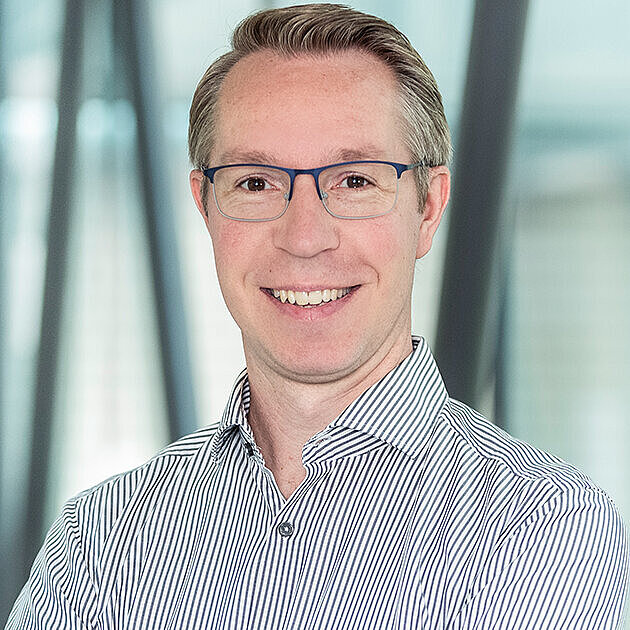At this year's symposium of the Helmholtz Institute for Pharmaceutical Research Saarland (HIPS) on 27 and 28 June, the focus was on the fight against antibiotic-resistant pathogens. On the occasion of the tenth anniversary of the HIPS, the specialist audience had two days – instead of the usual one day – to present and discuss the latest results from the field of antibiotics research. In addition to world-class researchers and talented young scientists from around the globe, guests from the political arena were also in attendance at the campus of Saarland University (UdS) to congratulate and celebrate the HIPS. The HIPS is a branch of the Helmholtz Centre for Infection Research (HZI) in Braunschweig and was founded jointly with Saarland University in 2009.
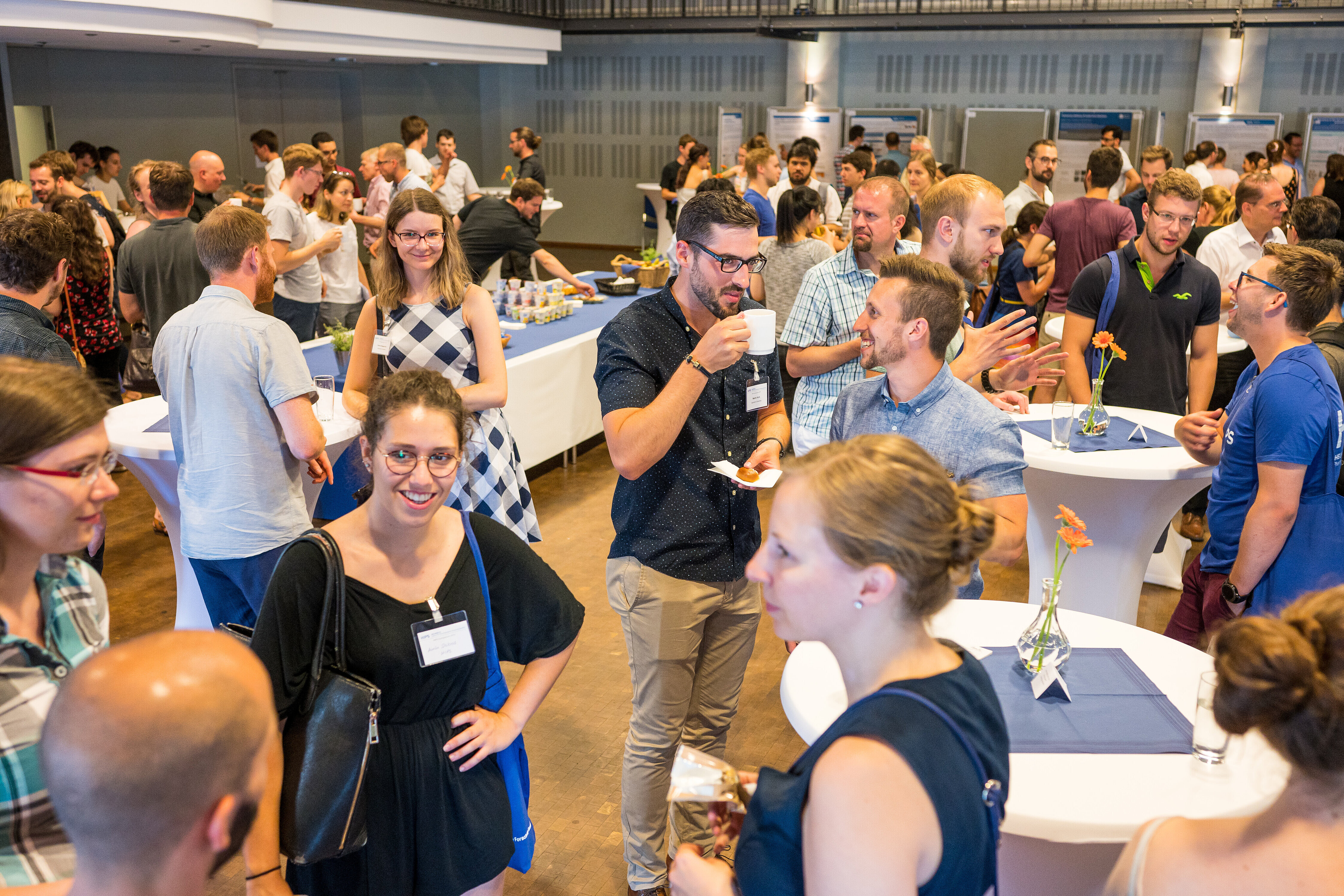
10 years of pharmaceutical research at the HIPS
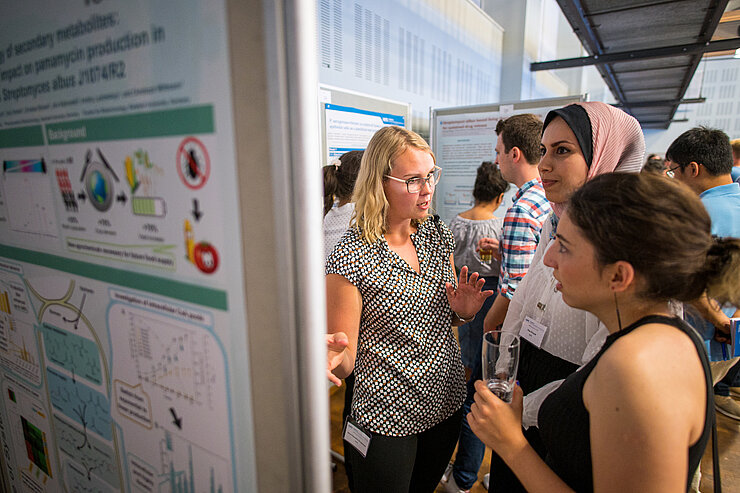
After welcoming almost 300 participants and giving a brief review of the history of the HIPS, Rolf Müller, Managing Director, handed over to Mathias Herrmann from the Münster University Hospital. Herrmann used case studies from everyday clinical practice to impressively illustrate the extent to which the threat posed by emerging antimicrobial resistances has grown in recent years. Therefore, novel resistance-breaking antibiotics are desperately needed. Without the availability of effective antibiotics, modern medical achievements, such as transplants, bone marrow donations or chemotherapy, would no longer be feasible. However, Herrmann sees translational research, i.e. the rapid transfer of research results to clinics, as an opportunity to prevent such a scenario – and this is exactly where the HIPS comes in.
Before the scientific part of the symposium began, Tobias Hans (Prime Minister of Saarland), Veronika von Messling (Chair of the HZI Supervisory Board and Director General – Life Sciences, Federal Ministry of Education and Research), Otmar D. Wiestler (President of the Helmholtz Association), Dirk Heinz (Scientific Director of the HZI) and Manfred Schmitt (President of Saarland University) extended greetings and congratulations to the HIPS on its tenth anniversary. The well-wishers praised the development of the institute in particular, and attested to its central role in German health research.
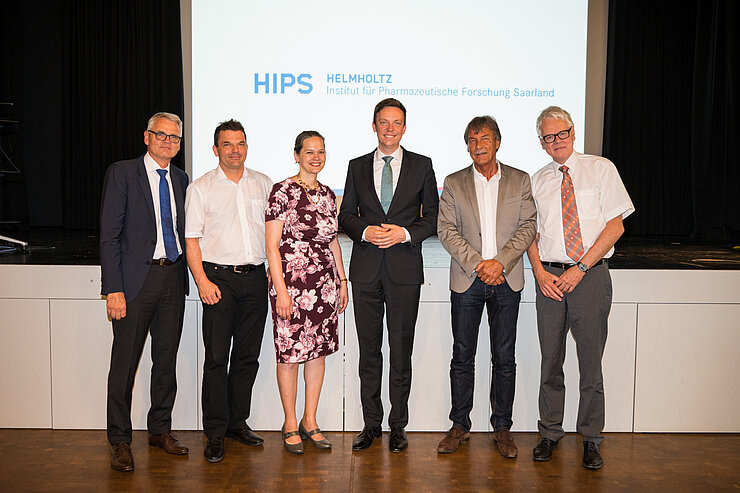
The scientific presentations were divided into three sessions on the topics of microbial natural products, drug delivery, and drug design and optimisation. In these, invited guests and selected conference participants presented their latest research results to the attendees. To mark the anniversary, two sessions with “scientific birthday talks” were held. As part of these talks, representatives from the HIPS sister institutes TWINCORE in Hannover and the Helmholtz Institute for RNA-based Infection Research (HIRI) in Würzburg, among others, were also invited to speak.
The traditional HIPS podium presentation rounded off the scientific programme. During this event, young HIPS scientists gave short talks about their current projects and the latest developments at the institute. The panel was opened by Mina Mehanny from the “Biogenic Nanotherapeutics” junior research group. In his talk, he explained how extracellular vesicles from streptococci can be used for targeted transport of vaccines to immune cells in the human body. Joscha Meiers, from the “Chemical Biology of Carbohydrates” research group is also working to improve the delivery of drugs to their destination: Through coupling an antibiotic to molecules that bind components of microbial biofilms, it is possible to increase the concentration of antibiotics exactly where the pathogen is located. In the third talk, Asfandyar Sikandar presented on the molecular mechanisms that lead to the formation of antimicrobial resistance. As a member of the “Structural Biology of Biosynthetic Enzymes” junior research group, he investigates the three-dimensional structure and mode of action of the albicidin-binding protein AlbA. Emilia Oueis talked about the myxobacterial metabolite chlorotonil. The molecule shows promising activity against multi-resistant Gram-positive bacteria as well as the malaria pathogen Plasmodium falciparum. The “Microbial Natural Products” department is currently collaborating with various partners on the pre-clinical development of the substance. The last talk in the HIPS podium presentation was from Ravindra Jumde from the “Drug Design and Optimization” department, who discussed his work on the potential drug target DXS. The enzyme is essential for the survival of a large number of medically relevant pathogens. However, there is still no clinically available drug to regulate its activity – this is what Jumde is investigating in his research.
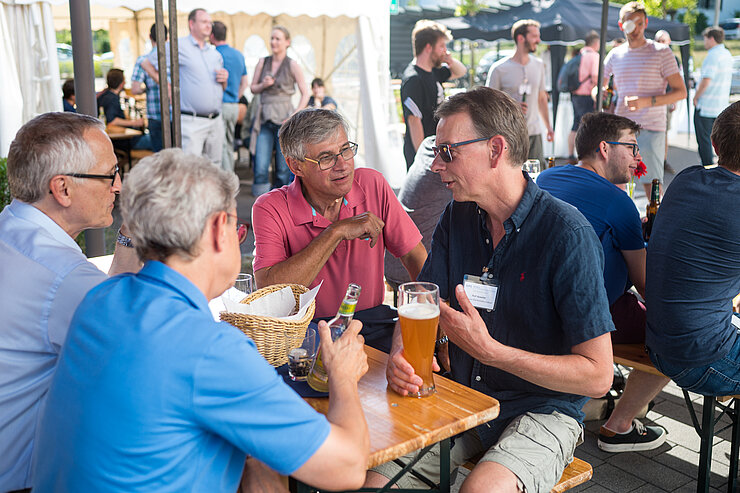
In addition to the talks, the conference participants had the opportunity to present their own scientific results in the form of poster presentations and to discuss these in an informal environment. On the evening of the first day, the conference participants moved from the auditorium at Saarland University to the HIPS building, where the celebrations for the tenth anniversary took place. Good weather and live music were the ingredients for a lively barbecue and plenty of discussion into the evening hours. The next HIPS symposium will be held on 18 June, 2020. The preparations are already underway.
Author: Yannic Nonnenmacher
Published: July 2019
